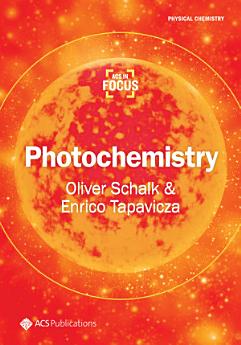Photochemistry
Über dieses E-Book
Alongside these two layers of theoretical development and experimental techniques is a third layer—model building. In this layer, model building tries to find similarities in seemingly unrelated experimental results and deepen our general knowledge of photoinduced processes. Often, progress is made not by cutting-edge techniques but rather by using well-established techniques with a great variety of molecules—this approach promises less glory but is just as important as the first two layers. Examples mentioned in the text are the Woodward–Hoffman rules and the dynamophore concept. All three layers are crucial to push our knowledge further and, eventually, to use it for developing new and more advanced optical devices.
Autoren-Profil
Oliver Schalk studied chemistry at Karlsruhe University and did his PhD in 2007 in the group of Horst Hippler, using transient absorption spectroscopy. In 2008, he joined Albert Stolow for a postdoctoral fellowship at the National Research Council Canada in Ottawa for studies on time-resolved photoelectron spectroscopy before moving to Munich where he worked at Ludwig Maximilian University with the groups of Eberhard Riedle and Reinhard Kienberger. In 2013, he moved to Stockholm University where he became docent in 2017. He is currently working as lab manager at Labino AB. He currently has more than 50 publications on photochemistry.
Enrico Tapavicza studied chemistry at Technical University Munich and University Bayreuth. He did his PhD in 2008 at École Polytechnique Fédérale de Lausanne in the group of Ursula Röthlisberger. In 2009, he joined Filipp Furche at University of California, Irvine as a postdoctoral fellow. In 2013, he was appointed assistant professor at California State University, Long Beach, and was promoted to associate professor in 2019. He developed and applied theoretical methods for photochemical dynamics and the prediction of spectra. He is also a co-developer of the TURBOMOLE quantum chemistry program.







